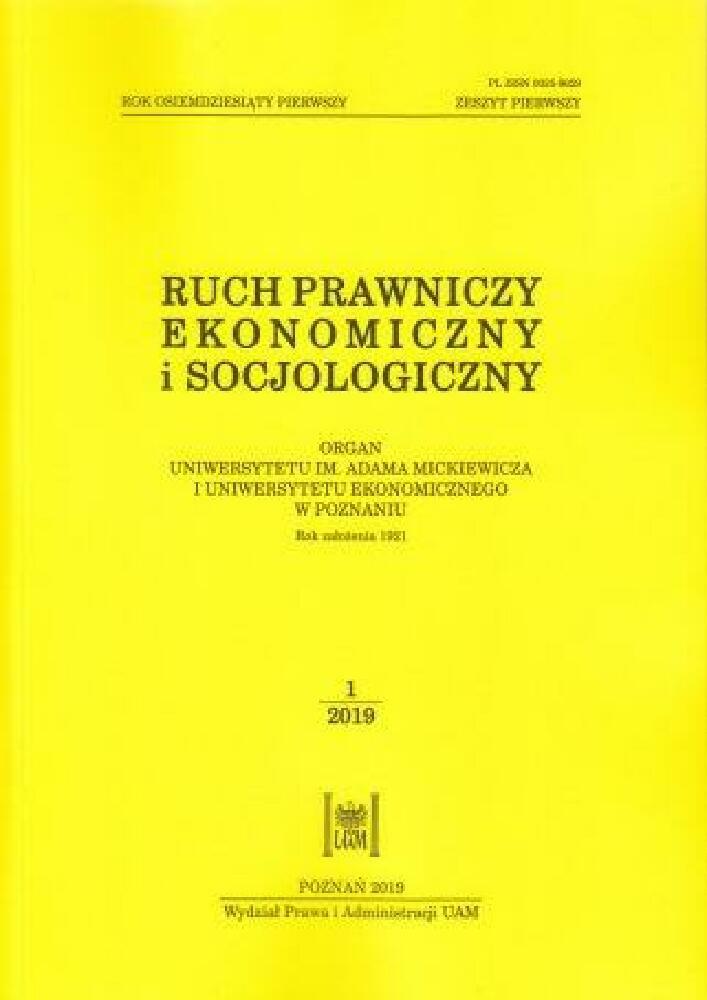Abstract
This article is Michał Dudek’s answer to the criticism articulated by Wojciech Ciszewski. In its first part it is noted, amongst other things, that Dudek and Ciszewski adopt different visions of the moral neutrality of law, or that they conduct analyses in a significantly different manner. It is also emphasized that Ciszewski frequently uses very idealistic, even counterfactual constructions and reads Dudek’s arguments erroneously. In the second part, Dudek, noticing Ciszewski’s very narrow critique of aligning law with morality, presents a more complete list of controversies connected with this postulate, including the problem of the incompleteness of morality, the diagnosis of morality, and the extension of the legislative process.References
Borucka-Arctowa, M. (1982). Społeczne funkcje prawa formułowane w doktrynie, ustawodawstwie i orzecznictwie, [w:] M. Borucka-Arctowa (red.), Społeczne poglądy na funkcje prawa. Wrocław–Warszawa–Kraków–Gdańsk–Łódź: 7–27.
CBOS (2014). Religijność a zasady moralne, Komunikat z badań, nr 15.
Ciszewski, W. (2016). Neutralność, demokracja, uspołecznienie. Ruch Prawniczy, Ekonomiczny i Socjologiczny 78(4): 81–92.
Ciszewski, W. (2014). W stronę „miękkiej” neutralności światopoglądowej państwa. Państwo i Prawo 69(6): 3–18.
Davies, M. (2017). Law Unlimited: Materialism, Pluralism, and Legal Theory. Abingdon.
Dudek, M. (2014). Autonomia, neutralność i indyferentność moralna prawa a jego uspołecznienie. Ruch Prawniczy, Ekonomiczny i Socjologiczny 76(4): 69–81.
Dziedziak, W. (2015). Wpływ sankcji prawnych i moralnych na skuteczność prawa. Studia Iuridica Lublinensia 24(1): 67–88.
Wróblewski, J. (1980). Skuteczność prawa i problemy jej badania. Studia Prawnicze 63–64(1–2): 3–26.
License
Copyright (c) 2019 WPiA UAM

This work is licensed under a Creative Commons Attribution-NonCommercial-NoDerivatives 4.0 International License.





